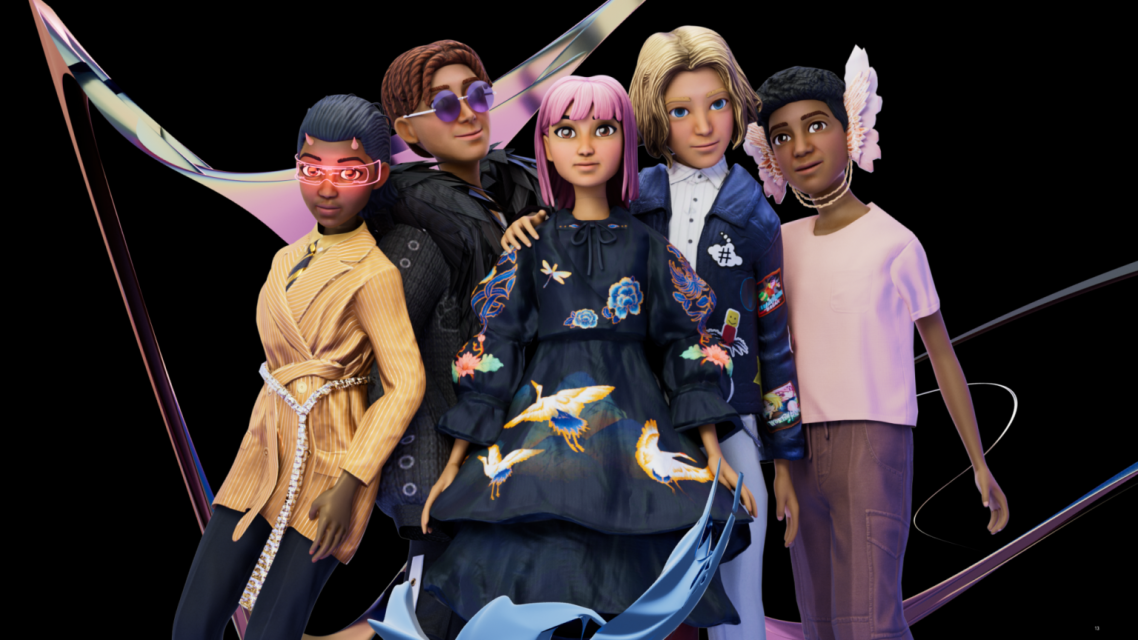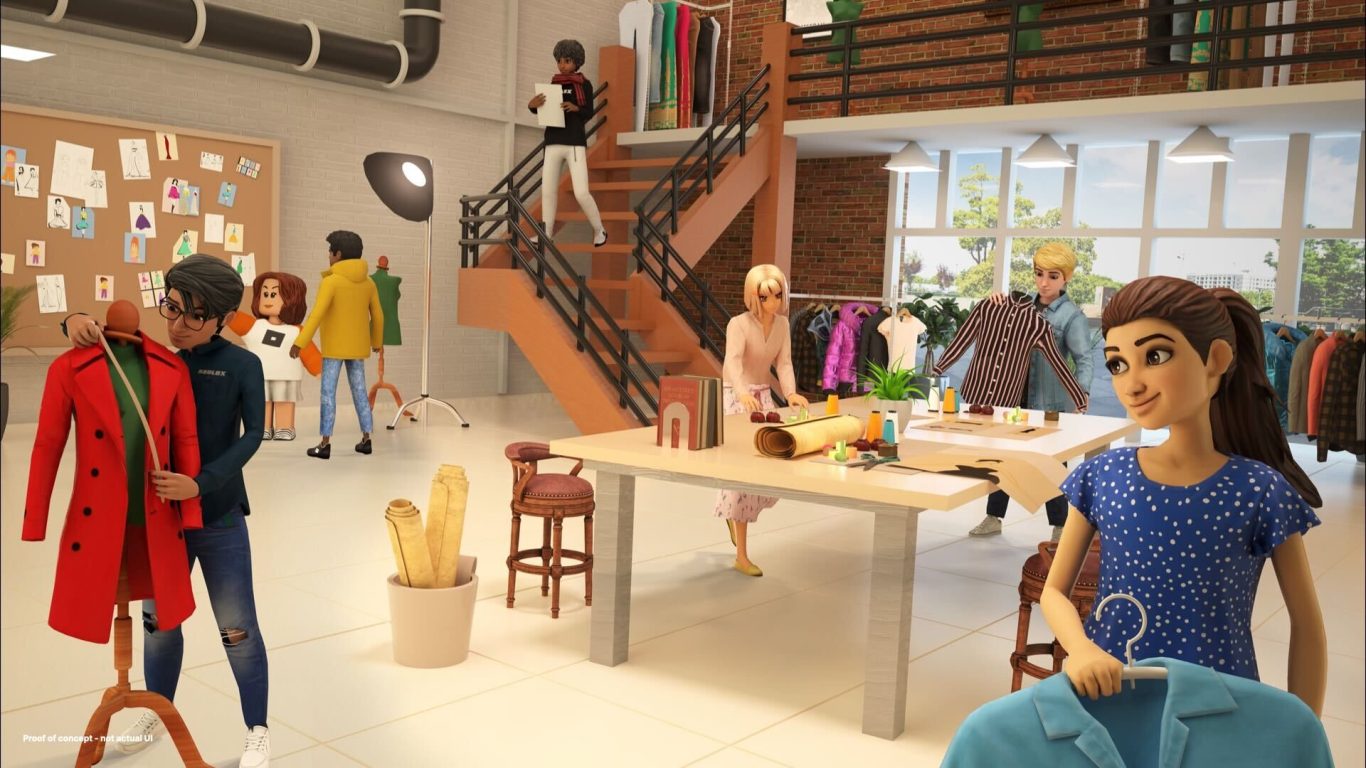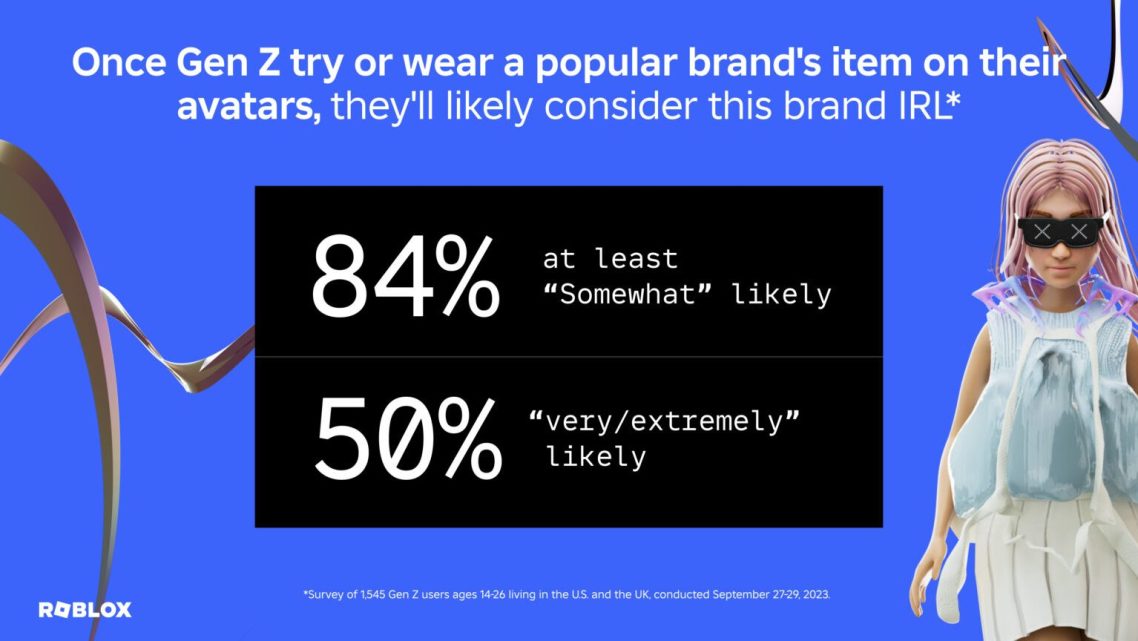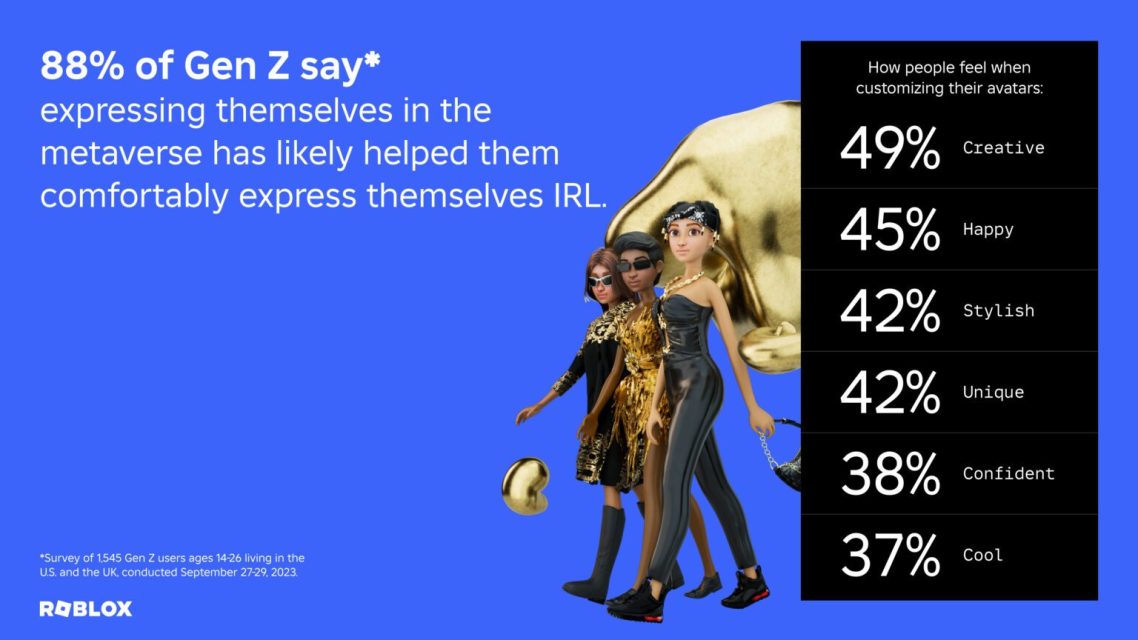Beyond Reality: Gen Z's Fashion Frontier in the Metaverse
November 15, 2023
Fashion & Technology
In the dynamic realm of the metaverse, Gen Z is redefining fashion, turning virtual spaces into thriving landscapes for digital self-expression. According to a recent Roblox report, Gen Z's interest in recognizable brand names and limited-edition items extends seamlessly into the digital realm, where digital counterparts hold significant importance.

Despite the evolving metaverse landscape and reports of experimental setbacks, Gen Z, particularly those aged 17 to 24, forms the fastest-growing demographic on platforms like Roblox. This generation's inclination towards branded virtual attire reflects a desire for a continuous exploration of styles, with 165 billion avatar updates in the first nine months of the year alone.
With clothing ranking as the top element for 70% of Gen Z avatars, the metaverse has become a space for regular updates and experimentation, mirroring physical fashion trends. Hairstyles, makeup, and accessories, including special "emotes" or movements, have become key components in this digital fashion evolution, providing an avenue for brands to connect with users.

Unique to the metaverse, limited-edition items hold sway, with "limited" gaining popularity. Brands like Fenty Beauty and Gucci are successfully weaving virtual exclusivity, reminiscent of real-world limited editions, into the fabric of the metaverse. Trends observed on social media and in the physical world, such as Y2K, pink, neutral colors, and cultural moments like mermaidcore, resonate strongly in digital fashion.
Gen Z's emphasis on customization extends beyond aesthetics to include aspects like hair color, skin tone, body size, and makeup decisions. Brands can leverage this by offering a range of options for personalization, tapping into a digital beauty market that mirrors users' desires for representation.

While the metaverse adoption might not have lived up to initial hype, it remains a significant revenue stream, projected to reach $400 billion by 2030. Roblox's resilience in the market, reporting a revenue of $713.2 million in the third quarter, signifies the lasting impact of a platform that Gen Z has embraced for over a decade.
Crucially, Gen Z's interest in the metaverse extends beyond digital fashion. A survey of 1,545 individuals between 14 and 26 years old revealed that more than half are willing to spend up to $10 monthly styling their avatars. This demographic sees digital self-expression as more important than physical styling, with 85% acknowledging the growing importance of digital fashion, dispelling any signs of hype fatigue.
As avatars influence physical style and vice versa, brands must adapt to Gen Z's preferences by actively engaging with the community. Recognizable brand names play a pivotal role, influencing three out of four Gen Z individuals who consider wearing digital fashion from recognized brands important.
In essence, Gen Z's immersion in the metaverse is more than a trend; it's a nuanced understanding of a digital space they've inhabited for years. For brands, the key to success lies in embracing the evolving landscape, amplifying digital creativity, and letting Gen Z shape the future of fashion, both in the metaverse and the physical world.

We need your consent to load the translations
We use a third-party service to translate the website content that may collect data about your activity. Please review the details in the privacy policy and accept the service to view the translations.

